If you click on a link and make a purchase we may receive a small commission. Read our editorial policy.
As a children’s caregiver, Disney’s Elio comes through for foster families in the same way the live-action Lilo & Stitch failed to
Pixar's Elio and Disney's live-action Lilo & Stitch have the same plot, but different answers (and problems) for foster kids and their families

Popverse's top stories
- Where to find Popverse at Seattle's Emerald City Comic Con 2026
- The Traitors US alum Bob the Drag Queen drops a piece of advice for future players: "You are not as good at this game as you think you are"
- Bridgerton season 4 ending explained - did Benedict and Sophie make it work, and who's leaving the show for good?
Ohana means family, and family means nobody gets left behind. This summer, one Disney movie perfectly delivered that message.
That film wasn’t Lilo & Stitch.
A tale of two movies

Disney’s summer 2025 theatrical slate is interesting because they just released two movies that are surprisingly similar. Lilo & Stitch is a movie about a young child who is living with a relative after the death of their parents. The child worries that they’re holding their caregiver back from their hopes and dreams. Hijinks ensue after the child befriends a wacky alien. Elio is a movie about a young child who is living with a relative after the death of their parents. The child worries that they’re holding their caregiver back from their hopes and dreams. Hijinks ensue after the child befriends a wacky alien.
To be fair, there are plenty of differences between the plots of the two films. Plus, they were made by two different studios under the Disney umbrella. Lilo & Stitch was produced by Walt Disney Pictures, while Elio was produced by Pixar Animation Studios. Despite what some people believe, productions like these usually happen in metaphorical silos, with one studio largely unaware of what the other is doing.
Still, it’s strange that Disney put two movies with similar plots in theaters within a month. For me, the biggest and most important difference is how each movie depicts children in foster care. While Lilo & Stitch sends a psychologically damaging message to kids, Elio sends a positive one.
As a children’s caregiver, Elio hit close to home, while Lilo & Stitch angered me. How did two films with similar plots wind up with contradictory messages?
The problem with Lilo & Stitch

I’ve already written an editorial about my problems with the Lilo & Stitch ending, and I won’t repeat the entire piece here. To sum it up, the 2025 Lilo & Stitch remake ends with Lilo’s sister, Nani, placing her into foster care so she can pursue her dream of becoming a marine biologist. Nani’s friends and neighbors appeal to her throughout the movie, stating that she should give Lilo up and that they would both be better off.
It's a nuanced situation, and I’m aware that Nani remains in Lilo’s life. However, as I wrote in the previously mentioned editorial, my issue was how foster kids viewing the film would internalize the message. When I’m not writing for Popverse, I work as a childcare provider. I’ve worked with many families where relatives have become a child’s guardian after the death of their parents. Many of these kids feel like a burden to their foster relatives, and wonder if they’re truly wanted, and if their guardians would be better off without them. Sadly, these are conversations I’ve had with plenty of foster kids over the years.
A foster child won’t care about the nuance in Nani and Lilo’s situation, or the portal gun that allows the sisters to keep in touch. Instead, they’ll see a movie that reinforces one of their deepest fears – the relative acting as your foster parent can give you up at any time, and their life will be better if they do.
“We didn’t want to just restage the beats of the original film,” director Dean Fleischer Camp tells Variety. “We wanted to tell a story that’s honest about what it means to lose everything and still find a way forward. People do get left behind, like what Nani says, this is, and it’s incumbent upon the community to make sure that they aren’t forgotten.”
That’s all well and good, and I realize he wanted to add realism to the story, but that doesn’t address the message this sends to children in the foster care system. Luckily, there’s another Disney film for them.
Why Elio is the true ohana

In many ways, Elio addresses my issues with Lilo & Stitch. The film not only acknowledges the fear and anxieties foster children have about feeling unwanted, but it also uses it as a major theme and the driving force behind the plot.
The film’s protagonist is Elio Solis, a young boy who is cared for by his aunt Olga after the death of his parents. Deep down, Elio feels like his aunt doesn’t truly want him, and her life would be better if he disappeared. Olga is an Air Force major who once dreamed of being an astronaut but put her aspirations on hold to be present for her nephew.
Elio is aware of this, and it only reinforces his guilt. Despite Olga’s reassurances, he feels like an obligation and believes his aunt secretly wants to get rid of him. It doesn’t help that he overhears a phone call where she says, “This just isn’t how I thought my life would be.” When Olga tries to enroll Elio in a sleepaway camp, his first reaction is to say, “You’re trying to get rid of me.”
Later, Elio pretends to be a parent during his space adventure, and he gives an alien warlord some fatherly advice. “If he’s too hard to handle, just ship him off. That’s what I did with mine.” At another point he tells his alien friend, “With me out of the way, she can do what she really wants, like be an astronaut or whatever.”
These are real fears that foster children have. These are real heart-wrenching conversations that I’ve had with the kids I’ve cared for over the years. Consider what would have happened if Elio had gone to a screening of Lilo & Stitch. The ending would’ve played into all his fears.
Elio’s desire to feel wanted drives him to seek adventure in outer space, but in the end, he realizes that his life is on Earth with his aunt Olga. “But this isn’t the life you wanted,” Elio tearfully says. “The only thing I want is you,” Olga says as she embraces her nephew.
This is what foster kids need to hear.
Representation matters

When you’re a kid, seeing characters that look like you on the big screen is important. That’s one of the reasons Mason connected with Elio.
Mason is a five-year-old boy who lost his mother in a car crash. He’s currently in foster care, where he’s been placed with his aunt. When Mason watches movies and television shows, he doesn’t see a lot of families that look like his. He sees little boys with mothers and fathers. Elio was different.
I took Mason to see the movie, and he immediately identified with Elio. He was excited to see another little boy who lived with his aunt, just like him. There’s a scene in the beginning where Elio is hiding under a table, feeling sad. “He misses his mommy, just like me,” Mason said. During the home scenes with Elio and Olga, Mason would turn to me and excitedly say, “His aunt is his parent, just like me.”
During the first act, there’s a scene where Elio is feeling unwanted, and he lashes out at his aunt. “You’re not my family,” Elio angrily yells.
“That is your family,” Mason yelled at the screen, as if Elio could hear him.
At five years old, Mason gets it.
Want to know what's coming up next in pop culture? Check out Popverse's guides to:
Follow Popverse for upcoming event coverage and news
Find out how we conduct our review by reading our review policy
Let Popverse be your tour guide through the wilderness of pop culture
Sign in and let us help you find your new favorite thing.


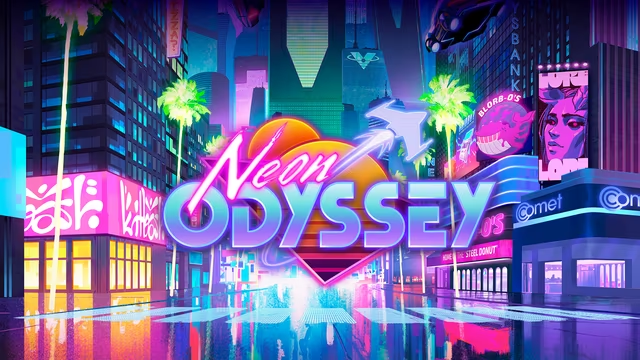
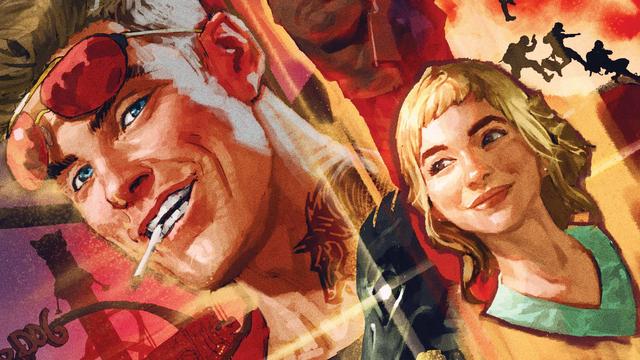

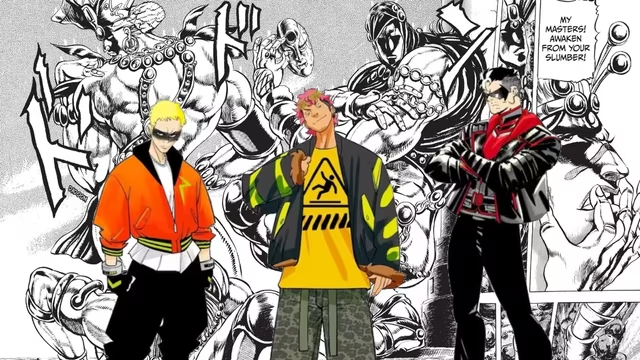
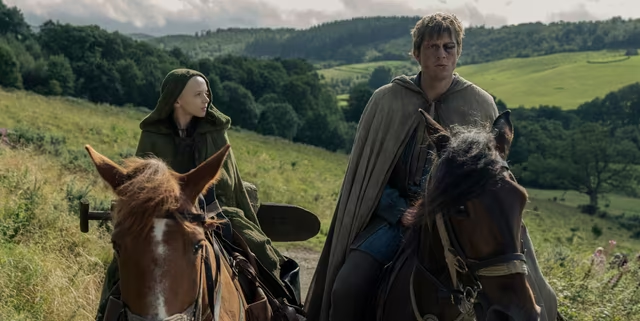


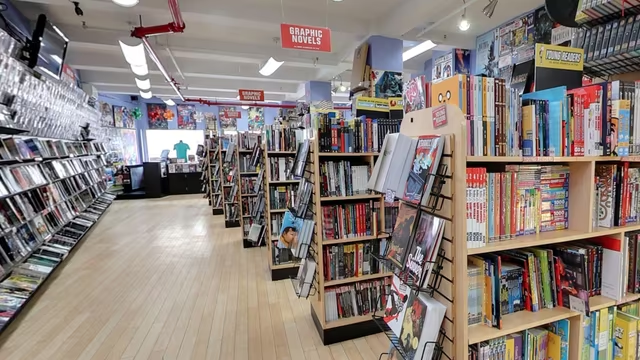






Comments
Want to join the discussion? Please activate your account first.
Visit Reedpop ID if you need to resend the confirmation email.